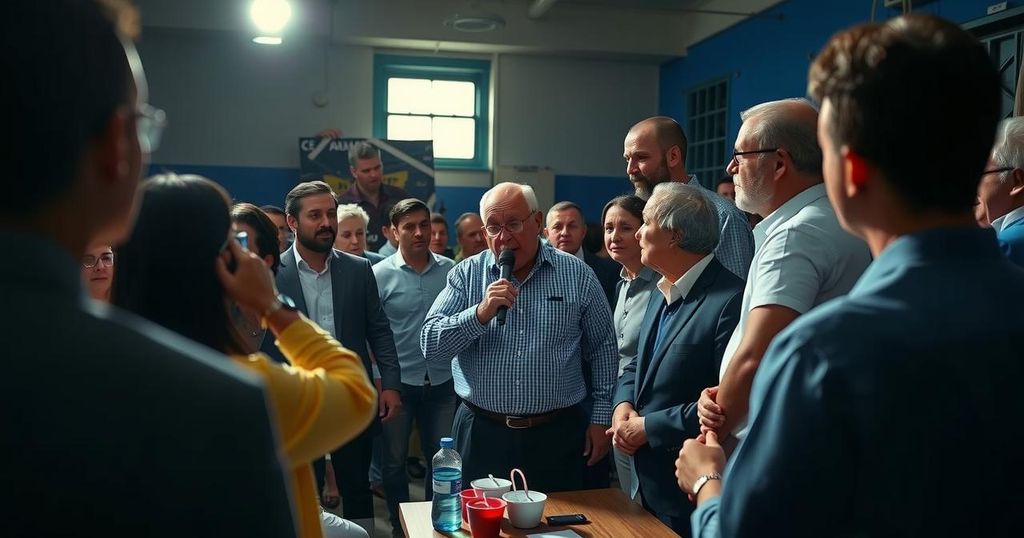Uruguay’s presidential runoff features centrist candidates Yamandu Orsi and Alvaro Delgado, separated by just 25,000 votes. Voter support from fringe candidates, particularly anti-vax radical Gustavo Salle, will be crucial in this election. While the country enjoys relative stability, issues such as high living costs and crime persist, influencing voter preferences ahead of the November 24 ballot.
In the upcoming runoff election in Uruguay, voters will choose between two centrist candidates: opposition center-left mayor Yamandu Orsi and conservative ruling coalition candidate Alvaro Delgado. A narrow margin of just 25,000 votes separates the two, suggesting that supporters of fringe candidates from the first round, including anti-establishment figure Gustavo Salle, will play a critical role in determining the outcome. Salle, despite warning against mainstream politics, suggested that his backers might favor Orsi due to his progressive policies, including environmental protections.
Uruguay’s political landscape diverges from the polarized right-left divides seen elsewhere in the world. The South American nation of 3.4 million, heading to the polls on November 24, enjoys a popular incumbent president, decreased inflation, and increasing employment rates. Nonetheless, persistent issues such as high living costs and violent crime fuel public discontent. Analysts suggest that the competition reflects limited demands for political change, with both candidates hesitant to make strong commitments to attract undecided voters.
Orsi, representing the Broad Front, captured 43.9% of votes in the initial round, whereas Delgado received 26.8%, bolstered by the Colorado Party’s support. Neither coalition commands an absolute majority in the lower house, which could hamper more radical legislative initiatives. As voter behavior remains uncertain, the efficacy of appeals to those who previously supported minor candidates will be paramount. Should higher abstention rates prevail, experts predict that Delgado’s coalition would likely gain an advantage, emphasizing the crucial nature of every vote in this closely contested election.
The article discusses the political climate leading up to the presidential runoff election in Uruguay, where the electorate is faced with choosing between centrist candidates after an initial election round that included fringe candidates. The context highlights the unique socio-political landscape of Uruguay, noting its stability compared to global trends of political polarization. Furthermore, it outlines the challenges faced by both main candidates in capturing public interest amidst pressing socioeconomic issues.
In conclusion, the upcoming election in Uruguay is set to be a pivotal moment, influenced by a slim margin between centrist candidates and the potential impact of votes from fringe candidates. With significant public concerns regarding economic conditions and security, both Orsi and Delgado must navigate a complex voter landscape. The outcome may hinge on appealing to those who previously supported minor parties or chose to abstain, underscoring the importance of every vote in this tightly contested race.
Original Source: www.usnews.com






